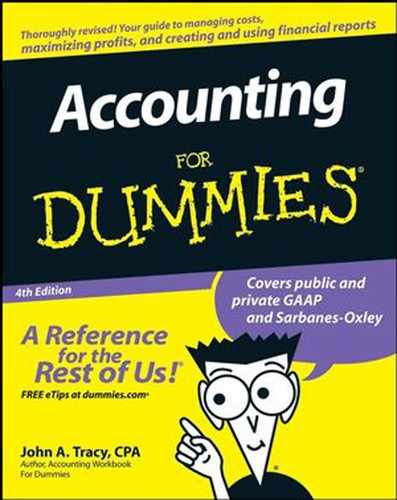15.1. Exploring the Need for Audits
One reason for audits — especially for smaller private companies that do not employ professionally qualified accountants — is to have a second set of eyes look over the business's accounting methods and financial reports. The investors and lenders of a business are more comfortable having an audit. Indeed, they may demand an annual audit as a condition of putting their money in the business. After all, there's the possibility that not everything is on the up-and-up in the business and in its financial report.
I hope I'm not the first person to point this out to you, but the business world is not like Sunday school. Not everything is pure and straight. A business could deliberately deceive its investors and lenders with false or misleading numbers in its financial report. That's where audits come in. Audits are one means of keeping misleading financial reporting to a minimum.
In a sense, CPA auditors are like highway patrol officers who enforce traffic laws and issue tickets to keep speeding to a minimum. Or, if you prefer another analogy, a business having an independent accounting professional come in once a year to check up on its accounting is like a person getting a physical exam once a year. The audit exam may uncover problems that the business was not aware of, and knowing that the auditors come in once a year to take a close look at things keeps the business on its toes.
After completing an audit examination, the CPA prepares a short report stating whether the business has prepared its financial report according to the appropriate U.S. or international accounting and reporting standards (which I explain in Chapter 2). In this way, audits are an effective means of enforcing accounting standards. The auditors hold the feet of managers to the fire, or at least that's how it should work.
NOTE
Businesses whose ownership and debt securities (stock shares and bonds) are traded in public markets in the United States are required to have annual audits by an independent CPA firm. (The federal securities laws of 1933 and 1934 require audits.) For a publicly traded company, the cost of an annual audit is the price the company pays for going into public markets for its capital and for having its securities traded in a public marketplace — which provides liquidity for its securities, of course.
Although federal law doesn't require audits for private businesses, banks and other lenders to private businesses may insist on audited financial statements. If lenders don't require audited statements, a business's shareowners have to decide whether an audit is a good investment. Of course, audits aren't cheap. It's hard to do an audit of even a small business in less than 100 hours. At $100 per hour (which is probably too low an estimate), the audit fee would be $10,000. Owners and investors in a private business should balance the cost of an audit (which they bear) against the benefit of getting more reliable financial statements from the business.
NOTE
Instead of a full-fledged audit, which they can't realistically afford, many smaller businesses have a CPA come in regularly to look over their accounting methods and give advice on their financial reporting. Unless a CPA has done a complete audit, she has to be very careful not to express an opinion of the company's financial statements. Without a careful examination of the evidence supporting the amounts reported in the financial statements, the CPA is in no position to give an opinion on the financial statements prepared from the accounts of the business.
